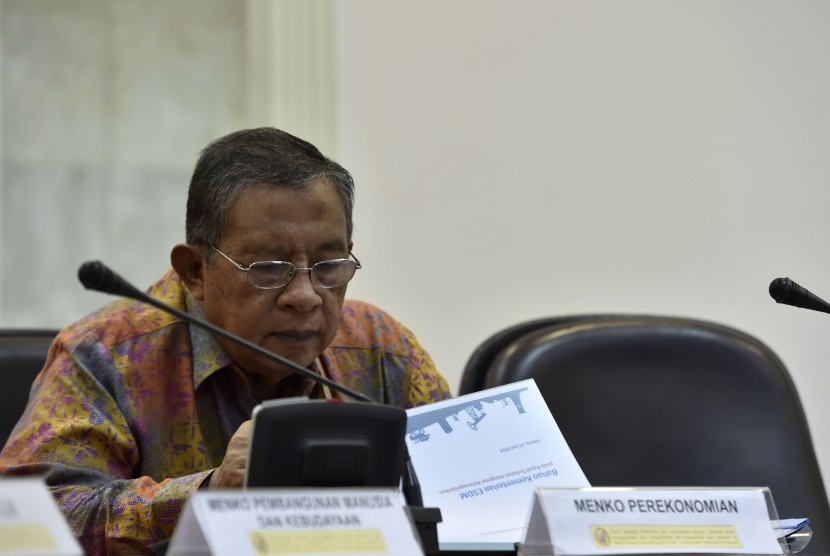REPUBLIKA.CO.ID, JAKARTA -- The Coordinating Ministry for Economic Affairs launched an urban logistics workshop program to explore logistic issues for boosting the efficiency of export trade and products from the suburban to the urban areas.
"We might be slightly late, but we still need to start deeply exploring logistic issues," said Coordinating Minister for Economic Affairs Darmin Nasution during the launch of an Urban Logistics and Land Transportation Management Workshop for Leaders and Specialists in Indonesia in Jakarta, Thursday.
The program is a result of the partnership between the Ministry, The Logistic Institute-Asia Pacific National University of Singapore, Indonesian Logistic Association and Temasek Foundation and aims to gain the knowledge and capability of mid-level and senior officials in central and regional governments, State Owned and Aerial Owned Enterprises (BUMN/BUMD) and researchers.
The partnership program will continue for 30 months starting April this year as an execution of the President's Regulation number 26 in 2012 related to the National Logistic System Development Blueprint.
In his speech, Darmin said efficient urban logistics will increase the quality of trade and economic activities.
Urban logistics itself has a lot to do with the observation of humans, goods and information effectiveness that is aimed towards the enhancement of the people's quality of life.
Darmin noted that urban logistics is an issue that has not been handled properly.
"The issues include congestion and disorderly traffic that causes a monetary burden, land limitation and fuel consumption resulting in pollution," he revealed.
The minister hopes that the workshop will be able to spark people's interest regarding urban logistics and can be help start the establishment of an urban logistics study that is yet to be fully explored in Indonesia.
Temasek Foundation Chairman Goh Geok Khim hopes that the workshop program can identify the useful aspects that help elevating Indonesia's urban logistics.
"It should also be a lesson in implementing transportation system policies in the cities. The proficiency that can be established through this program needs the commitment to later be applied to the public," he concluded.


